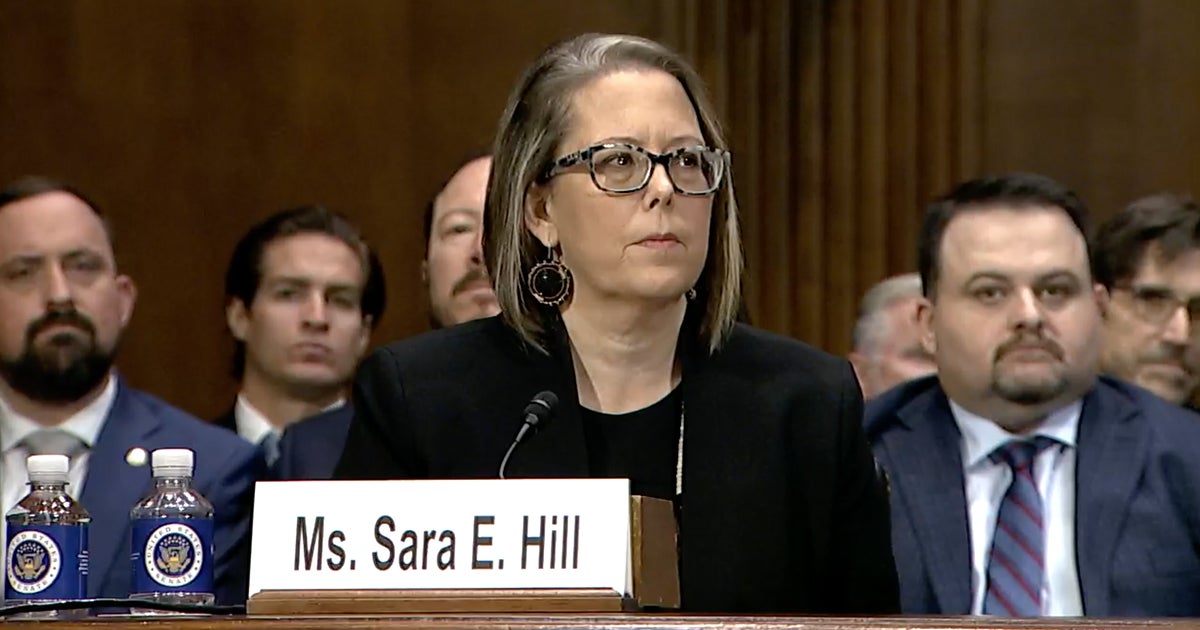
by Jorge Gomez • 5 min read
At a recent Senate Judiciary Committee hearing, one of President Biden’s judicial nominees appeared to have hard time explaining basic legal terms.
Sara E. Hill, nominated for a federal judgeship on the Northern District of Oklahoma, was asked by Sen. John Kennedy of Louisiana about two types of orders frequently issued by federal courts. According to Fox News, the senator asked her to explain the difference between a “stay” and an “injunction.” She struggled and stumbled through her answer.
“A stay order would prohibit, um, sorry. An injunction would restrain the parties from taking action. A stay order…I’m not sure I can, actually can, can give you that,” Hill said.
Sen. Kennedy also asked the nominee about an important doctrine in the fields of criminal law and civil procedure, known as “collateral estoppel.”
“I think collateral estoppel…um…well senator, I will say that my 20 years of practice has primarily been dealing with issues of criminal law or relating to other areas of the law,” Hill responded.
“If you don’t know, just tell me,” Sen. Kennedy interjected.
“I certainly do know collateral estoppel. I’m finding that the bright lights of the moment are making it hard for me to recall it,” Hill said.
Watch the full exchange below:
Hill’s struggle with routine legal terms isn’t the only reason why her nomination is concerning. There are questions about her integrity, as others say she may have lied to Congress.
The Federalist explains that “Hill apparently lied about her previous pledge to ignore state abortion laws on Cherokee Nation land following the historic Dobbs v. Jackson ruling.” Hill previously served as attorney general of the Cherokee Nation.
Sen. Mike Lee of Utah asked Hill whether she had said that she “had no intent to enforce the law post-Dobbs.” Hill responded by claiming she “never said that.”
But video footage from her time as attorney general shows the opposite, Hill can be heard on a recording saying she would not update any procedures in her tribal office to enforce abortion laws passed in the state of Oklahoma after the Dobbs ruling.
Hill joins a growing list of Biden nominees who—according to senators on the judiciary committee—may be unqualified to serve on the federal bench for life.
Kato Crews, nominated for a district court in Denver, was also stumped during his confirmation hearing. Crews failed to answer Sen. Kennedy’s question about a criminal law procedure known as a Brady motion. He also did not answer when asked how to “analyze” one of these proceedings. Charnelle Bjelkengren, nominated to be a district court judge in Washington, couldn’t tell the judiciary committee what Article II and Article V of the Constitution say.
Both Crews and Bjelkengren are waiting for a confirmation vote on the Senate floor.
Biden’s judicial picks are controversial not only because they can’t seem to articulate basic constitutional and legal concepts, but also because many of their records are dismal on religious freedom.
First Liberty’s analysis reveals that numerous nominees hold positions far outside the mainstream. While in private practice, some of them worked for—or were endorsed by—the most radical groups in the country, which suggests they could be hostile to religious liberty and unconstitutionally advance a liberal policy agenda from the federal bench.
Judicial Confirmations at a Glance
As of Nov. 30, the Senate has confirmed more than 150 Biden judges. Still, Biden trails several of his predecessors:
Some judicial analysts say Biden could surpass Trump’s total number of judges. Many expect Biden to have more district court judges confirmed compared to the Trump administration, which focused more on getting judges confirmed to the federal appeals court.
At this point in his presidency, Biden still has far fewer vacancies than Trump. So, the total will depend on whether new vacancies open up for Biden to fill and possibly get closer to Trump. That’s the big “if.”
There are about 65 vacancies with approximately 30 pending nominees, according to the Administrative Office of the U.S. Courts.
First Liberty will continue to monitor judicial nominees. Federal judges make critical legal decisions about your religious freedom. Our team of experts will continue to provide you with the facts if any of them have a radical or unacceptable record.